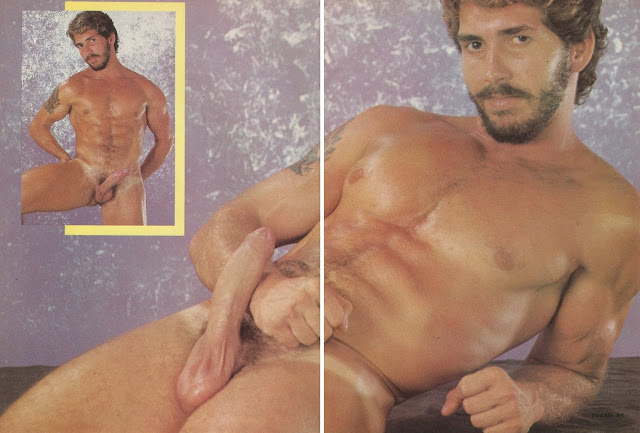1984, historian Michael Bronski explains, witnessed a cultural backlash against the sexual liberation of gay men. As the AIDS epidemic ravaged the community and neo-conservatism swept throughout the nation, the hedonistic pursuits of the 1970s came under fire as both heterosexual and homosexual critics questioned the safety and validity behind the regular and random connections in bathhouses and tearooms. As a result, the year marked the beginning of a major push to close bathhouses and a rise in police monitoring of public restrooms. The June 1984 issue of Numbers (which has been broken into two parts) presents an intriguing glimpse into this shifting opinion: a review of Rollo Production’s Bathhouse Fantasies upholds the romanticized image of the domain as a sexually emancipated playground, whereas Chas Dietrich’s short story “Subway Patrol” takes a darkly erotic look into the racism and homophobia of police officers patrolling public restrooms. Presented in this second half (see the first half here) is the Bathhouse Fantasies review, along with spreads of models Joe, Mark, and Paul.

























































